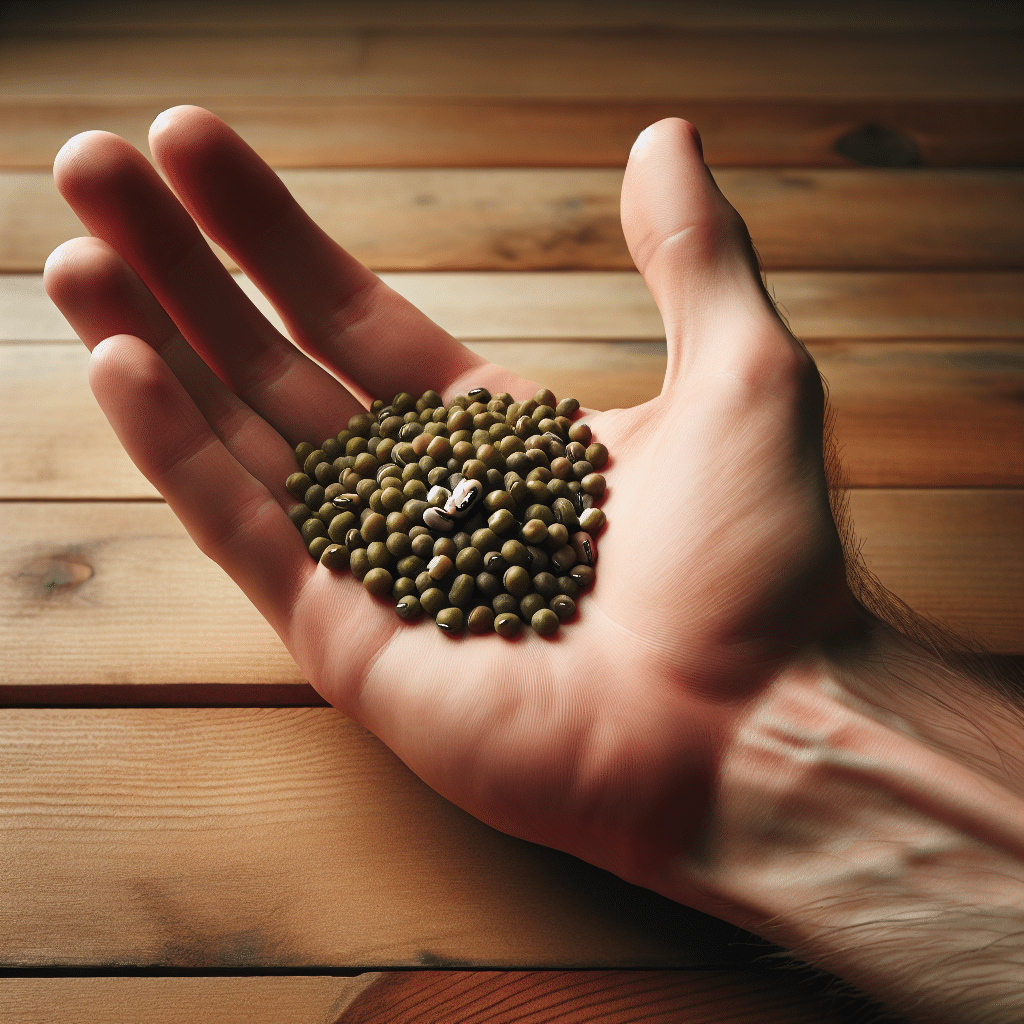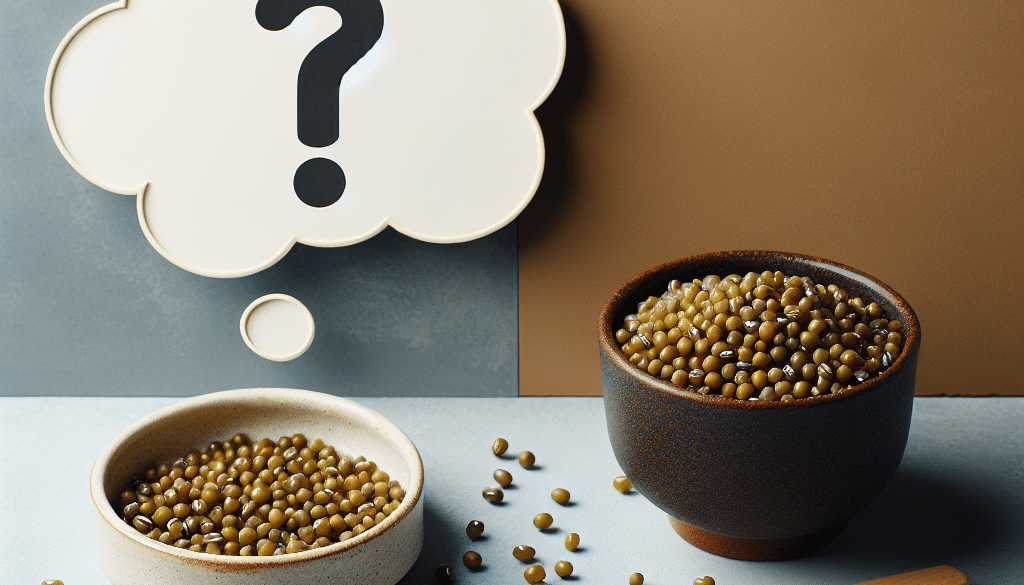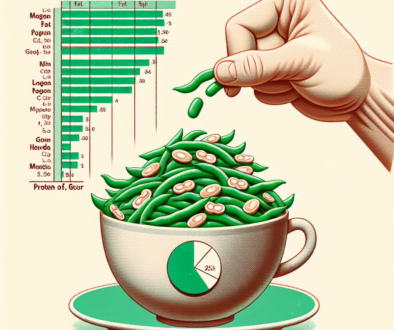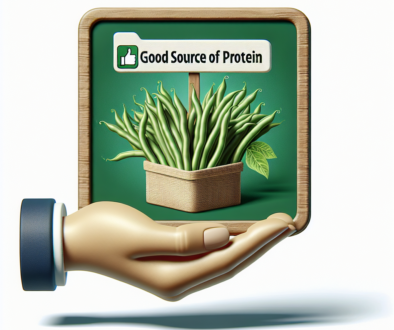Can I eat Raw Mung Beans?
-
Table of Contents
- Raw Mung Beans: Are They Safe and Nutritious to Eat?
- Understanding Mung Beans and Their Nutritional Profile
- Can You Eat Mung Beans Raw?
- The Risks of Eating Raw Mung Beans
- Benefits of Sprouting Mung Beans
- How to Safely Consume Mung Beans
- Research and Case Studies on Mung Bean Consumption
- Statistical Data on Mung Bean Consumption
- Conclusion: To Eat or Not to Eat Raw Mung Beans
- Discover ETprotein’s High-Quality Mung Bean Protein Products
Raw Mung Beans: Are They Safe and Nutritious to Eat?

Mung beans, a staple in many Asian cuisines, are small, green legumes that are often sprouted before consumption. They are known for their versatility and health benefits, packed with protein, fiber, and various vitamins and minerals. However, when it comes to eating mung beans raw, there are several considerations to take into account. This article explores the safety and nutritional aspects of consuming raw mung beans, supported by research, examples, and statistics.
Understanding Mung Beans and Their Nutritional Profile
Mung beans are a nutrient-dense food source. They contain essential amino acids, making them an excellent protein source, especially for vegetarians and vegans. They are also rich in dietary fiber, which aids in digestion and promotes a feeling of fullness. Additionally, mung beans are a good source of antioxidants, vitamins such as B vitamins, and minerals like potassium, magnesium, and iron.
- Protein content: Mung beans are about 20-24% protein.
- Fiber content: They provide around 16 grams of fiber per 100 grams.
- Antioxidant levels: Mung beans contain antioxidants such as vitexin and isovitexin.
Can You Eat Mung Beans Raw?
While mung beans are often sprouted and eaten raw in salads and sandwiches, there is a debate about the safety of consuming them without cooking. Raw beans contain lectins, which are proteins that can be toxic and interfere with nutrient absorption when consumed in large amounts. Cooking is known to reduce the lectin content significantly, making beans safer to eat.
The Risks of Eating Raw Mung Beans
Eating raw mung beans can pose health risks due to the presence of lectins and other anti-nutrients. These substances can cause gastrointestinal distress and may lead to symptoms like nausea, vomiting, and diarrhea. Moreover, raw beans may harbor harmful bacteria such as E. coli, which can lead to foodborne illnesses.
Benefits of Sprouting Mung Beans
Sprouting mung beans is a common practice that can reduce anti-nutrient content and improve digestibility. The sprouting process also increases the availability of certain nutrients, making sprouted mung beans a potentially healthier option than their raw counterparts.
How to Safely Consume Mung Beans
To safely consume mung beans, it is recommended to cook them thoroughly or sprout them properly. Here are some tips for safe consumption:
- Soak mung beans for at least 12 hours before cooking or sprouting to reduce anti-nutrients.
- Cook mung beans by boiling them for at least 20 minutes to ensure they are safe to eat.
- If sprouting mung beans, do so in a clean environment and consume them within a few days to minimize the risk of bacterial growth.
Research and Case Studies on Mung Bean Consumption
Several studies have investigated the effects of consuming raw versus cooked or sprouted mung beans. For instance, research published in the “Journal of Agricultural and Food Chemistry” found that sprouting mung beans increased their antioxidant capacity. Another study in the “International Journal of Food Sciences and Nutrition” reported that sprouting could enhance the bioavailability of iron and zinc in mung beans.
Case studies have also highlighted the risks associated with eating raw beans. In one instance, an outbreak of food poisoning was traced back to raw mung bean sprouts contaminated with bacteria. Such cases underscore the importance of proper handling and preparation of mung beans.
Statistical Data on Mung Bean Consumption
Statistics show that the global consumption of mung beans is on the rise, with Asia being the largest consumer and producer. The increasing popularity of plant-based diets has also contributed to the growth in mung bean consumption worldwide.
- Asia accounts for over 70% of the global mung bean production.
- The global market for sprouted beans and seeds, including mung beans, is expected to grow significantly in the coming years.
Conclusion: To Eat or Not to Eat Raw Mung Beans
In conclusion, while mung beans are a nutritious addition to the diet, it is advisable to avoid consuming them raw due to potential health risks. Properly cooking or sprouting mung beans can make them safer and even more nutritious. By following the recommended preparation methods, you can enjoy the health benefits of mung beans without compromising safety.
Discover ETprotein’s High-Quality Mung Bean Protein Products
If you’re looking for a safe and nutritious way to incorporate mung beans into your diet, consider ETprotein’s protein products. ETprotein offers a variety of organic bulk vegan proteins, including mung bean protein, which is characterized by a neutral taste, non-GMO, and allergen-free attributes. Their mung bean protein is an excellent choice for those seeking plant-based protein sources to support their dietary needs.
About ETprotein:
ETprotein, a reputable protein and L-(+)-Ergothioneine (EGT) Chinese factory manufacturer and supplier, is renowned for producing, stocking, exporting, and delivering the highest quality organic bulk vegan proteins and L-(+)-Ergothioneine. They include Organic rice protein, clear rice protein, pea protein, clear pea protein, watermelon seed protein, pumpkin seed protein, sunflower seed protein, mung bean protein, peanut protein, and L-(+)-Ergothioneine EGT Pharmaceutical grade, L-(+)-Ergothioneine EGT food grade, L-(+)-Ergothioneine EGT cosmetic grade, L-(+)-Ergothioneine EGT reference grade and L-(+)-Ergothioneine EGT standard. Their offerings, characterized by a neutral taste, non-GMO, allergen-free attributes, with L-(+)-Ergothioneine purity over 98%, 99%, cater to a diverse range of industries. They serve nutraceutical, pharmaceutical, cosmeceutical, veterinary, as well as food and beverage finished product distributors, traders, and manufacturers across Europe, USA, Canada, Australia, Thailand, Japan, Korea, Brazil, and Chile, among others.
ETprotein specialization includes exporting and delivering tailor-made protein powder and finished nutritional supplements. Their extensive product range covers sectors like Food and Beverage, Sports Nutrition, Weight Management, Dietary Supplements, Health and Wellness Products, and Infant Formula, ensuring comprehensive solutions to meet all your protein needs.
As a trusted company by leading global food and beverage brands and Fortune 500 companies, ETprotein reinforces China’s reputation in the global arena. For more information or to sample their products, please contact them and email sales(at)ETprotein.com today.














